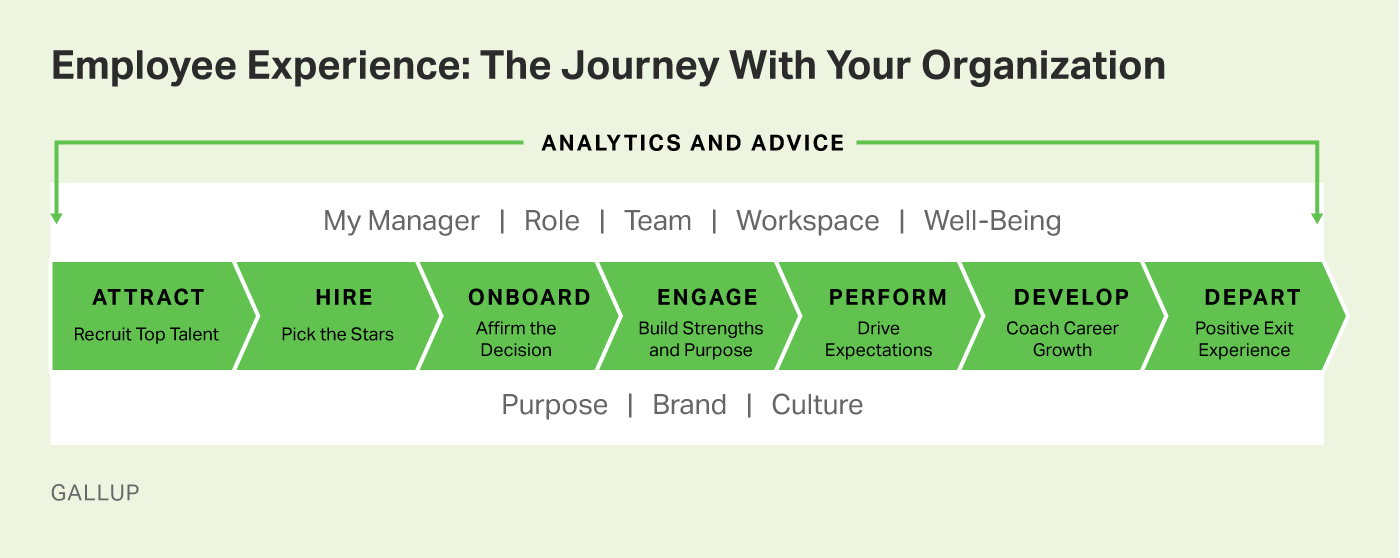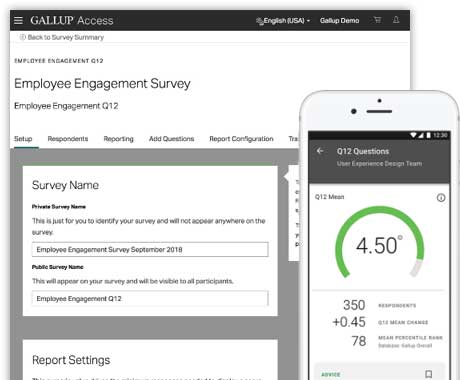Story Highlights
- Organizations can't fake their employment brand anymore because of online sharing
- The employee experience is now a strategic priority for human resources
- Don't worry, HR -- employee experience does not replace employee engagement
If you're an organizational leader or if you work in HR, you may have noticed something recently -- or even over the past few years now: Your organization can't fake its employment brand anymore.
Workplace experiences quickly get shared online, as well as throughout your company. So your brand gets created based on what your company culture actually is.
This makes the stakes (good and bad) for companies higher than ever when it comes to reputation, hiring talented people, customer engagement and the bottom line. That's why the employee experience trend emerged and why it has become a strategic priority for leaders today.
HR leaders are right to focus on the employee experience.
But for companies that have spent the past decade focusing on employee engagement methods, what does this new focus mean? Is employee engagement being replaced by employee experience? Are they the same?
What Is the Employee Experience?
The employee experience is the journey an employee takes with your organization.
It is the sum of all interactions an employee has with an employer -- yes, it includes the entire employee life cycle -- from recruitment to exit. But Gallup's perspective goes beyond that, too.
Our research shows that the crucial factors that influence the employee experience throughout the employee life cycle include an employee's manager, role, team, workspace and wellbeing.
Also, the experiences within each life cycle stage should align with your leadership's overall vision for your company's purpose, brand and culture.

For example, if your organization promotes a customer-centric culture, how is that culture experienced by employees in your hiring and onboarding processes? Where does it show up on performance reviews? How might it be expressed in the way you say "goodbye" to employees who are moving on or retiring?
Our approach broadens your company's view of how you can influence the way a worker feels about your organization.
You no longer simply try to make onboarding fun, you create a deeper connection with your organization that affects employee retention, engagement, performance and development -- and whether or not they will represent your brand in a positive light.
You no longer simply try to make onboarding fun, you create a deeper connection to your organization that affects employee retention, engagement, performance and development...
Why the Employee Experience Is Not a Replacement for Employee Engagement
Employee engagement involves the basic psychological needs that must be met for employees to perform their specific roles well, on an everyday basis.
Employee engagement remains crucial because engaged employees show up -- physically, emotionally and cognitively. They are enthusiastic about what they have to do, and they naturally find ways to improve and excel. They generate most of the creativity, innovation and excellence in your organization.
In the employee life cycle, engagement is at the center and it's a critical component at each stage.
Furthermore, engagement involves the daily execution of one's role, and increasing employee engagement is primarily the responsibility of managers. Gallup's analysis shows that the manager alone accounts for 70% of the variance in team engagement. They are critical to engagement and to getting the employee experience right throughout the life cycle.
Engagement should be a pillar of every organization's everyday management and employee experience strategy. Not a separate initiative or only thought of during one of the seven touch points on the employee life cycle.






